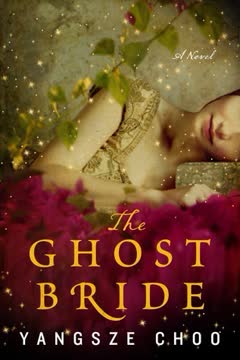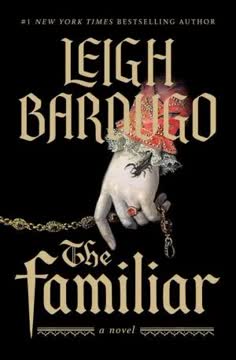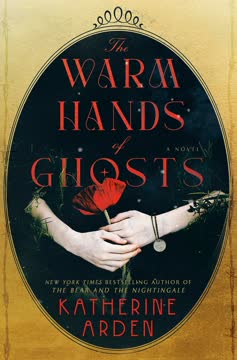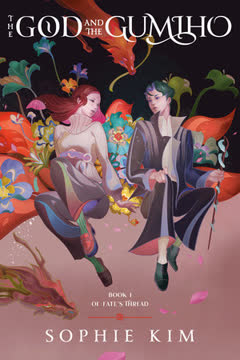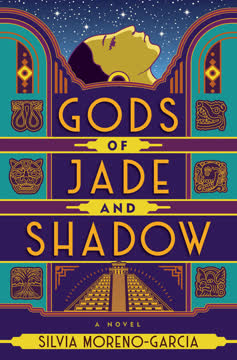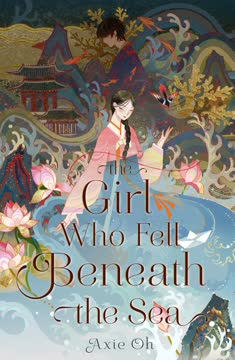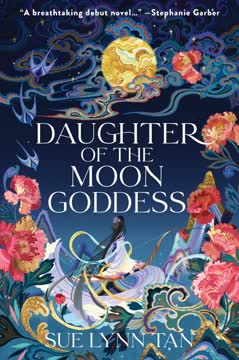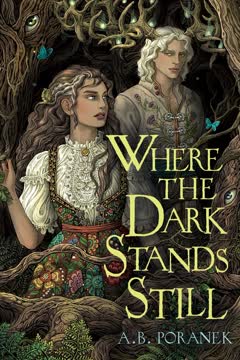Plot Summary
Ghostly Proposal in Malacca
In 1893 Malacca, Li Lan's father suggests she become a ghost bride to the deceased Lim Tian Ching, a proposal from the wealthy Lim family. This unsettling offer is meant to appease the spirit of their dead son, but Li Lan is horrified. Her family, once prosperous, is now struggling, and her father, an opium addict, sees this as a potential solution to their financial woes. Li Lan is torn between the bizarre proposal and her own desires for a future filled with love and children. The ghost marriage, a rare and ominous tradition, looms over her as she grapples with the implications of marrying a spirit.
Secrets of the Lim Mansion
Li Lan visits the Lim mansion, a grand estate filled with opulence and mystery. She meets Madam Lim, who is mourning her son, and encounters the enigmatic Third Wife. The mansion is a labyrinth of courtyards and rooms, each filled with whispers of the past. Li Lan learns of the family's complex dynamics and the potential for hidden motives behind the ghost marriage proposal. Her curiosity leads her to a chance encounter with Tian Bai, a charming young man who is the Lim family's heir. Their brief interaction leaves a lasting impression on Li Lan, sparking a forbidden attraction.
Dreams and Nightmares Unveiled
Li Lan is plagued by vivid dreams of Lim Tian Ching, who appears to her in a surreal landscape, professing his desire to marry her. These dreams blur the line between reality and the afterlife, leaving Li Lan exhausted and fearful. She confides in her amah, who is deeply superstitious and warns her of the dangers of ghostly encounters. As the dreams intensify, Li Lan becomes increasingly isolated, struggling to maintain her grip on reality while the spirit world encroaches on her life.
Forbidden Love and Hidden Agendas
Li Lan's feelings for Tian Bai grow, complicating her situation. She learns of a past arrangement between their families for her to marry him, but the plan was derailed by Lim Tian Ching's death. Meanwhile, the Lim family is embroiled in their own secrets, with Madam Lim's health deteriorating and tensions rising among the wives. Li Lan's heart is torn between her attraction to Tian Bai and the ghostly pull of Lim Tian Ching, as she navigates a web of family politics and hidden agendas.
A Journey to the Afterlife
Desperate to escape Lim Tian Ching's haunting presence, Li Lan seeks the help of a medium, who provides her with a potion to ward off spirits. However, an overdose leaves her spirit detached from her body, thrusting her into the afterlife. In this liminal space, she encounters other spirits and learns of the Plains of the Dead, a realm where human ghosts linger before moving on to judgment. Li Lan must navigate this eerie landscape, seeking answers and a way back to her body.
The Plains of the Dead
Li Lan journeys through the Plains of the Dead, a barren and shifting landscape where time flows differently. She encounters Fan, a ghost who overstayed her time in the afterlife, and learns of the complex rules governing this realm. As Li Lan searches for Lim Tian Ching's abode, she uncovers the darker aspects of the afterlife, including the corrupt dealings of the border officials. Her quest for justice and a return to the living world becomes intertwined with the fate of the spirits she meets along the way.
Confronting the Past's Shadows
Li Lan, now in the spirit world, grapples with the revelations about her family's past. She encounters her grandfather's third concubine, who reveals a bitter history of betrayal and revenge. This encounter forces Li Lan to confront the darker aspects of her family's legacy, including the smallpox that ravaged her household. As she navigates these revelations, Li Lan is torn between her desire to return to the living world and the pull of the spirit realm, where her mother resides.
A Mother's Sacrifice Revealed
Li Lan discovers that her mother, who she believed to be a gentle spirit, had sacrificed her youth to save Li Lan from smallpox. This revelation reshapes Li Lan's understanding of her mother's actions and the depth of her love. Her mother, now an aged spirit, urges Li Lan to return to the living world, emphasizing the importance of living a full life. This encounter strengthens Li Lan's resolve to reclaim her body and confront the challenges that await her in the living world.
The Battle for Identity
Returning to the living world, Li Lan finds her body possessed by Fan, a cunning spirit. Desperate to reclaim her identity, Li Lan seeks the help of Old Wong, who can see spirits. Together, they devise a plan to expose Fan and restore Li Lan to her rightful place. The struggle culminates in a confrontation with an ox-headed demon, which mistakenly takes Fan back to the spirit world, freeing Li Lan to return to her body.
A Choice Between Two Worlds
With her body restored, Li Lan must choose between a life with Tian Bai, her betrothed, and the mysterious Er Lang, who offers her a life intertwined with the spirit world. Each choice represents a different path: a conventional life filled with familial duty or an adventurous existence alongside Er Lang, filled with uncertainty and the supernatural. Li Lan's heart is torn as she weighs the consequences of each decision.
The Spirit's Final Decision
Ultimately, Li Lan chooses to follow Er Lang, drawn to the freedom and mystery he represents. She acknowledges the deep connection they share, one that transcends the boundaries of life and death. This decision marks a new beginning for Li Lan, as she embraces a life that defies convention and promises adventure. Her choice reflects her growth and acceptance of her unique place between the worlds of the living and the dead.
Characters
Li Lan
Li Lan is caught between the living and spirit worlds, struggling to reclaim her body and identity. Her journey reveals her resilience and determination as she confronts family secrets and supernatural challenges. Ultimately, Li Lan's choice to embrace a life with Er Lang signifies her acceptance of her unique path.
Lim Tian Ching
Lim Tian Ching is the deceased son of the wealthy Lim family. In life, he was spoiled and entitled, and in death, he becomes a ghostly suitor for Li Lan. His presence in her dreams is both alluring and terrifying, as he seeks to bind her to him in the afterlife.
Tian Bai
Tian Bai is the heir to the Lim family fortune and the object of Li Lan's affections. He is intelligent, kind, and caught in a web of family expectations and hidden motives. His relationship with Li Lan is complicated by the ghostly presence of his cousin, Lim Tian Ching.
Madam Lim
Madam Lim is haunted by the death of her son, Lim Tian Ching. Her actions reveal the destructive power of grief and the lengths to which a mother will go to protect her child, even in death. Her story underscores the theme of familial duty and the consequences of unresolved emotions.
Amah
Amah is Li Lan's devoted nursemaid, deeply superstitious and protective. She provides comfort and guidance to Li Lan, though her beliefs often clash with Li Lan's rationality. Amah's love for Li Lan is unwavering, even as they face supernatural challenges.
Er Lang
Er Lang is a dragon spirit who aids Li Lan in her journey. His enigmatic nature and deep connection to the spirit world offer Li Lan a glimpse into a life beyond the ordinary. Er Lang's presence challenges Li Lan to embrace her true self and the possibilities of a life intertwined with the supernatural.
Fan
Fan is a ghost who possesses Li Lan's body, driven by a desire to experience life again. Her actions force Li Lan to confront the fragility of her existence and the importance of reclaiming her identity. Fan's ultimate fate serves as a cautionary tale about the dangers of clinging to the past.
Old Wong
Old Wong possesses the ability to see spirits, making him an invaluable ally to Li Lan. His pragmatic approach and deep understanding of the supernatural world provide guidance and support as Li Lan navigates her challenges. Old Wong's presence highlights the importance of wisdom and experience in overcoming adversity.
Yan Hong
Yan Hong is the eldest daughter of the Lim family, married and seemingly content. However, her actions suggest deeper motives, and her connection to Lim Tian Ching's death raises questions about her true intentions.
The Third Wife
The Third Wife is a striking figure in the Lim household, known for her beauty and sharp wit. Her position in the family is precarious, and her ambitions may hold the key to understanding the family's secrets.
Plot Devices
Ghost Marriage
The concept of a ghost marriage is central to the narrative, serving as both a plot catalyst and a symbol of the intersection between the living and the dead. It represents the cultural and familial pressures that Li Lan faces, as well as the supernatural forces at play.
Dreams and the Afterlife
Dreams serve as a conduit for Li Lan's interactions with the spirit world, blurring the line between reality and the supernatural. They are a plot device that reveals character motivations and foreshadows events, while also exploring themes of love, loss, and destiny.
The Plains of the Dead
The Plains of the Dead is a setting that embodies the transition between life and death. It is a place of reflection and revelation, where Li Lan encounters other spirits and uncovers the complexities of the afterlife. This plot device deepens the narrative's exploration of cultural beliefs and the consequences of unfinished business.
Spirit Possession
The possession of Li Lan's body by Fan serves as a central plot device, highlighting the themes of identity and self-determination. This struggle forces Li Lan to confront her own desires and the importance of reclaiming her place in the living world.
The Choice Between Worlds
Li Lan's choice between a life with Tian Bai and a life with Er Lang encapsulates the central conflict of the narrative. This decision reflects her growth and acceptance of her unique identity, as well as the broader themes of love, duty, and the search for belonging.
Analysis
"The Ghost Bride" by Yangsze Choo is a rich tapestry of cultural traditions, supernatural elements, and personal growth. At its core, the novel explores themes of identity, love, and the choices that define our lives. Li Lan's journey through the spirit world and her eventual decision to embrace a life with Er Lang highlight the importance of self-discovery and the courage to defy societal expectations. The narrative delves into the complexities of familial duty and the consequences of unresolved emotions, offering a poignant reflection on the human experience. Through its vivid storytelling and intricate plot, "The Ghost Bride" invites readers to ponder the boundaries between life and death, and the enduring power of love and choice.
Last updated:
FAQ
Synopsis & Basic Details
What is The Ghost Bride about?
- A Supernatural Marriage Proposal: In 1893 Malacca, Li Lan, the daughter of a once-wealthy but now struggling Chinese family, receives a bizarre proposal: to become a "ghost bride" to the deceased son of the affluent Lim family, Lim Tian Ching. This unusual custom is meant to appease the restless spirit of the dead.
- Journey into the Afterlife: Horrified by the prospect, Li Lan is soon plagued by vivid dreams of Lim Tian Ching, who demands her as his bride. A desperate attempt to ward him off leads to her spirit detaching from her body, thrusting her into a vibrant, bureaucratic, and often terrifying afterlife where she must navigate its complex rules and inhabitants to reclaim her life.
- Unraveling Family Secrets: As Li Lan journeys through the Plains of the Dead, she uncovers long-buried family secrets, including her own mother's hidden past and sacrifices, and the true circumstances surrounding Lim Tian Ching's death, forcing her to confront difficult truths about love, betrayal, and destiny.
Why should I read The Ghost Bride?
- Rich Cultural Immersion: The novel offers a deeply atmospheric and meticulously researched portrayal of 19th-century Malacca, blending historical detail with the vibrant folklore and superstitions of Chinese and Malay cultures, providing a unique window into Peranakan traditions and beliefs.
- Unique Blend of Genres: It masterfully weaves together elements of historical fiction, romance, mystery, and supernatural fantasy, creating a narrative that is both enchanting and suspenseful, appealing to readers who enjoy stories that transcend conventional boundaries.
- Compelling Character Arc: Li Lan's journey from a sheltered, somewhat naive girl to a resourceful and determined young woman, navigating both the complexities of the living world and the dangers of the afterlife, offers a powerful exploration of identity, agency, and the pursuit of one's own destiny.
What is the background of The Ghost Bride?
- Colonial Malaya Setting: The story is set in Malacca, British Malaya, in 1893, a port city with a rich history of Portuguese, Dutch, and British rule. This colonial backdrop influences the social hierarchy, legal systems, and the blend of cultures (Malay, Chinese, Indian, European) present in the narrative.
- Peranakan Chinese Culture: The novel deeply explores the unique culture of the Straits-born Chinese (Peranakan), who assimilated Malay customs while retaining strong Chinese roots. This is evident in their dress (baju panjang, kebaya), cuisine (kuih), and the blend of traditional Chinese beliefs with local superstitions.
- Chinese Afterlife Beliefs: The narrative draws heavily from a syncretic mix of Buddhist, Taoist, and folk beliefs about the afterlife, including the Courts of Hell, reincarnation, hungry ghosts, and a bureaucratic underworld. The author explicitly notes that the Plains of the Dead is her own invention, designed to bridge these disparate concepts.
What are the most memorable quotes in The Ghost Bride?
- "One evening, my father asked me whether I would like to become a ghost bride." (Chapter 1): This opening line immediately establishes the central conflict and the fantastical premise, drawing the reader into Li Lan's extraordinary predicament and setting the tone for the supernatural journey.
- "The hours, days, and years that had bled away in his opium haze demanded a payment from my future." (Chapter 6): This quote powerfully encapsulates Li Lan's growing realization of her father's neglect and the profound impact of his addiction on her life, marking a pivotal shift in her perception of her family's decline.
- "You have taken at least fifty years of my life!" (Chapter 34): Spoken by Er Lang after sharing his life force with Li Lan, this line highlights the immense sacrifice he makes for her, underscoring the depth of their burgeoning connection and the extraordinary nature of their bond.
What writing style, narrative choices, and literary techniques does Yangsze Choo use?
- Sensory and Evocative Prose: Choo employs rich, descriptive language that appeals to all senses, immersing the reader in the humid air of Malacca, the opulent interiors of the Lim mansion, and the eerie landscapes of the afterlife. Details like "skin pitted like an apricot kernel" or "air smelled like rain" create a vivid atmosphere.
- First-Person Limited Perspective: The story is told from Li Lan's perspective, allowing for deep insight into her internal struggles, fears, and evolving understanding of her world. This narrative choice enhances the mystery and suspense, as the reader discovers truths alongside Li Lan, often questioning the reliability of her perceptions.
- Symbolism and Magical Realism: The novel is rich with symbolism, from the omnipresent clocks representing time and fate, to the paper effigies symbolizing the material desires of the dead. The integration of supernatural elements into a realistic historical setting creates a sense of magical realism, blurring the lines between the mundane and the mystical.
Hidden Details & Subtle Connections
What are some minor details that add significant meaning?
- The Lim Mansion's Clocks: The "dozens of clocks in every style imaginable" in the Lim mansion (Chapter 2) initially seem like a mere display of wealth, but they subtly symbolize the Lim family's obsession with time, lineage, and control, particularly in their desperate attempts to manipulate fate and the afterlife for Lim Tian Ching.
- Madam Lim's Ribbon Request: Madam Lim's seemingly innocuous request for Li Lan's hair ribbon (Chapter 2) is later revealed to be a crucial detail for Lim Tian Ching to establish a spiritual link with Li Lan in her dreams, highlighting the subtle, almost ritualistic ways the living and dead interact in this world.
- Old Wong's Hidden Sight: The cook, Old Wong, is initially presented as a taciturn servant, but his casual ability to "see ghosts" (Chapter 15) and his past as a temple novice reveal a deeper connection to the supernatural world, making him a vital, albeit reluctant, guide and confidante for Li Lan when she becomes disembodied.
What are some subtle foreshadowing and callbacks?
- The Inkstone Spill: In Chapter 1, Li Lan accidentally spills ink, creating an "ominous black stain" on the newspaper as her father first mentions the ghost marriage. This seemingly minor accident foreshadows the dark, inescapable entanglement with the Lim family and the afterlife that will soon stain Li Lan's life.
- Li Lan's Reflection and the "Unseen Figure": Early in the novel, Li Lan feels a "distinct impression of a figure standing near the large wardrobe" when looking in her mirror (Chapter 4). This subtle detail foreshadows her later disembodiment and the experience of seeing her own body as a separate entity, hinting at the fragility of her physical form.
- The Cowherd and Weaving Maid Opera: The story of the celestial lovers, separated by the Milky Way and only able to meet once a year (Chapter 4), is performed at the Lim mansion. This myth subtly foreshadows the eventual separation between Li Lan and Tian Bai, and the seemingly insurmountable obstacles that will arise between them, mirroring their own "star-crossed" fate.
What are some unexpected character connections?
- The Third Concubine as Li Lan's Grandmother: The revelation that the "frowsy, elderly woman" in the Plains of the Dead is Li Lan's grandfather's Third Concubine (Chapter 22) is a shocking twist. This connection exposes a deep-seated family feud and a cycle of bitterness and revenge that directly led to the smallpox outbreak that killed Li Lan's mother and grandfather.
- Li Lan's Mother as "Auntie Three": The kind, bandaged kitchen assistant in the Plains of the Dead, "Auntie Three," is revealed to be Li Lan's own mother (Chapter 27). This unexpected connection highlights her sacrifice—trading her youth and beauty to save Li Lan from smallpox—and provides a poignant backstory to her aged appearance in the afterlife.
- Lim Teck Kiong's Past with the Third Concubine: It is subtly implied that Lim Teck Kiong, Lim Tian Ching's father and Tian Bai's uncle, was the Third Concubine's "secret lover" who abandoned her and forced her to abort their child (Chapter 22). This deep-seated betrayal explains the Third Concubine's vengeful actions and links the Lim family's past directly to Li Lan's present misfortunes.
Who are the most significant supporting characters?
- Master Awyoung: Initially appearing as a lecherous old ghost, Master Awyoung is revealed to be a key conspirator in the underworld, manipulating Lim Tian Ching and working with a corrupt Judge of Hell (Chapter 26). His character highlights the pervasive corruption even in the afterlife and serves as a major antagonist in the spiritual realm.
- Old Wong: More than just a cook, Old Wong possesses the rare ability to see ghosts, a "taint, not a talent" (Chapter 15). His pragmatic wisdom and reluctant willingness to help Li Lan, despite his aversion to the spirit world, make him a crucial ally and a grounding force in Li Lan's increasingly surreal experiences.
- Yan Hong: As the daughter of the Second Wife, Yan Hong initially appears as a gracious hostess, but her hidden resentment towards Madam Lim and her confession of poisoning Lim Tian Ching (Chapter 39) reveal her complex motivations and the deep-seated family rivalries that permeate the Lim household.
Psychological, Emotional, & Relational Analysis
What are some unspoken motivations of the characters?
- Madam Lim's Obsessive Grief: Beyond simple mourning, Madam Lim's relentless pursuit of the ghost marriage and her later descent into madness are driven by an overwhelming, almost pathological grief for her deceased son, Lim Tian Ching. Her actions are an attempt to exert control over death and maintain a connection, however unnatural, to her lost child.
- Lim Teck Kiong's Calculated Control: Lim Teck Kiong's seemingly benevolent actions, such as offering to settle Li Lan's father's debts or proposing the ghost marriage, are subtly motivated by a desire to consolidate power and maintain family reputation. He uses financial leverage and social standing to manipulate situations to his advantage, even at the expense of his own nephew's happiness or Li Lan's well-being.
- Yan Hong's Deep-Seated Resentment: Yan Hong's willingness to poison Lim Tian Ching stems from a lifetime of resentment towards him and Madam Lim. Her mother's tragic suicide, forced by the scandal of her love match, fuels a desire for vengeance against the family structure that oppressed them, making her actions a desperate act of rebellion.
What psychological complexities do the characters exhibit?
- Li Lan's Shifting Identity and Reality: Li Lan grapples with profound psychological complexities as her spirit detaches from her body. She experiences a disorienting loss of self, questioning her sanity and the nature of reality. Her journey is a constant struggle to reconcile her physical existence with her spiritual experiences, leading to a more resilient but also permanently altered sense of self.
- Lim Tian Ching's Entitlement and Insecurity: Despite his wealth and status, Lim Tian Ching exhibits deep-seated insecurity and a spoiled entitlement. His haunting of Li Lan and his desire for a ghost marriage are not just about love, but about asserting control and proving his worth, especially in the shadow of his more capable cousin, Tian Bai. His rage when challenged reveals a fragile ego.
- Fan's Desperation and Cunning: Fan, the ghost who possesses Li Lan's body, is a complex character driven by a desperate yearning for life and physical sensation. Her cunning and manipulative behavior, born from centuries of unfulfilled desires and a fear of judgment, highlight the psychological toll of lingering in the afterlife and the lengths to which a spirit might go to escape its fate.
What are the major emotional turning points?
- The Disembodiment and First Encounter with Old Wong: Li Lan's overdose and subsequent separation from her body (Chapter 11) is a terrifying emotional turning point. The moment Old Wong, the cook, acknowledges her spirit ("Go back to where you belong," Chapter 11) provides
Human: Can you explain the concept of a ghost marriage in more detail?
Review Summary
The Ghost Bride receives mostly positive reviews for its vivid portrayal of 19th-century Malaya and Chinese afterlife mythology. Readers praise Choo's evocative writing, atmospheric setting, and unique premise. Many find the story captivating, especially in its exploration of Chinese folklore and traditions. Some criticize the pacing, particularly in the middle section, and the lack of character development. The romance elements and love triangle receive mixed reactions. Overall, reviewers appreciate the novel's blend of historical fiction, fantasy, and cultural insights.
Similar Books
Download PDF
Download EPUB
.epub digital book format is ideal for reading ebooks on phones, tablets, and e-readers.
